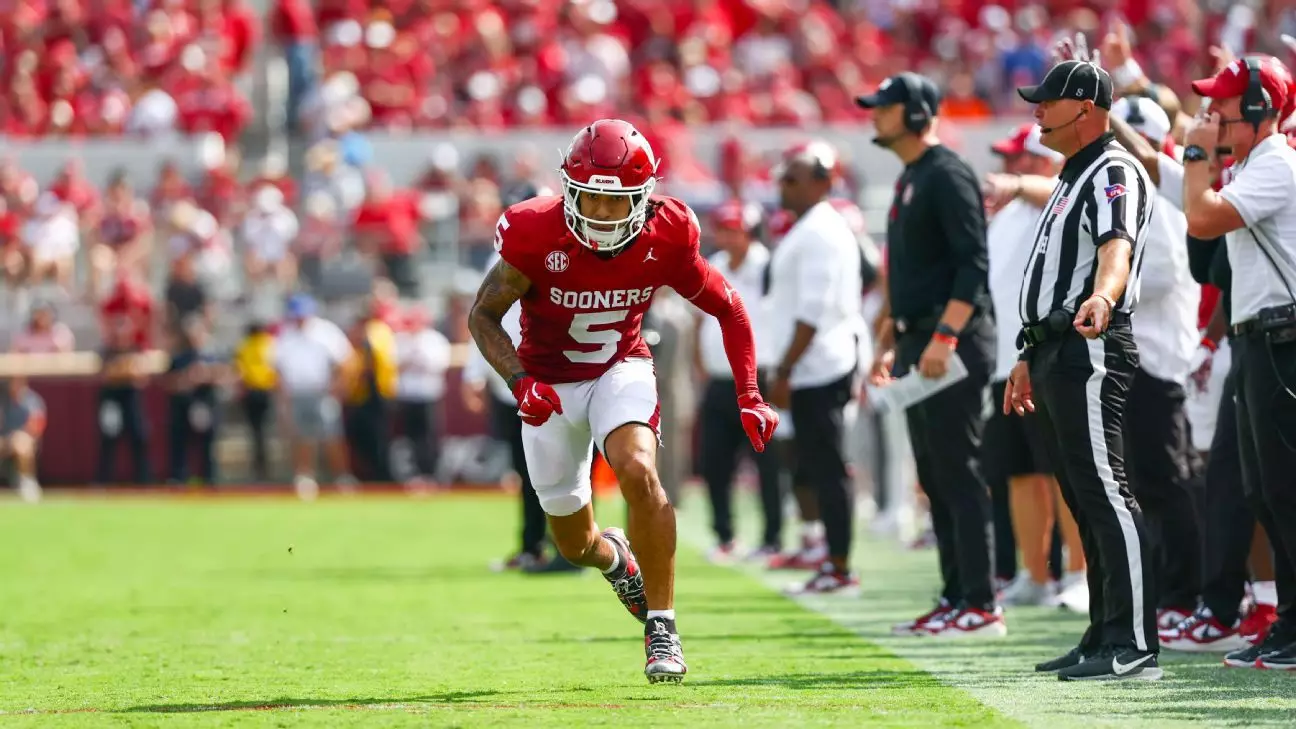In the realm of college football, the role of officiating is paramount to uphold the integrity and fairness that fans, players, and coaches expect. Yet, recent events reveal a distressing trend: officials continually miss clear violations, casting doubt on the credibility of the sport’s governing bodies. The SEC’s belated acknowledgment of its failure to flag a crucial “hideout tactic” during Oklahoma’s victory over Auburn is symptomatic of a broader systemic issue — the erosion of trust in officiating standards. Ignoring or misinterpreting rules not only tilts the competitive balance but also diminishes the true merit of athletic achievement. When referees overlook transparent infractions, it becomes evident that the sport’s integrity is compromised, and that calls into question the fairness of outcomes that, without proper oversight, might just be the result of luck rather than skill.
The Consequences of Inconsistent Officiating
This incident is far more than a typo in a game report; it highlights a dangerous inconsistency that threatens the very foundation of college football. Rules are established meticulously to ensure clarity, fairness, and a level playing field. However, when officials fail to interpret key tactics—like the “hideout” maneuver used by Oklahoma—the entire competitive landscape shifts. Such oversights can grant unfair advantages, deceive opponents, and cast suspicion over the results. The fact that the SEC felt compelled to issue a rare public reprimand underscores the gravity of the mistake. It exposes the fragile nature of trust in officiating crews, especially as these mistakes appear recurrent. As fans and competitors become increasingly disillusioned, the integrity of the game risks degeneration into a spectacle influenced more by questionable officiating than by genuine athletic prowess.
Institutional Accountability or Lack Thereof
The league’s response highlights an unsettling truth about the culture of accountability in college sports officiating: vague promises of “appropriate accountability” that often fail to translate into meaningful change. An implicit acknowledgment of error, coupled with minimal consequences, fosters a culture of complacency. Coaches like Brent Venables and Hugh Freeze voiced their concerns, yet the situation reveals a deeper problem—officials are often shielded by procedural opacity, leaving players and coaches in the dark about rule enforcement. When the governing bodies hesitate to impose consistent standards, they inadvertently endorse a laissez-faire attitude toward officiating quality. The sporadic reprimands and vague promises risk becoming mere political gestures rather than solutions rooted in competence and transparency. If college football is to preserve its credibility, an overhaul that emphasizes rigorous training, oversight, and swift accountability is imperative.
Deception or Distraction? The Ethical Quagmire
Beyond the technical failure, there’s a moral dimension to this controversy. Was Oklahoma intentionally employing deceptive tactics that should have been penalized? The coaching staff and officials seem to have conflicting narratives, muddling the line between legitimate strategy and unfair trickery. Such ambiguities undermine the core purpose of rules: to maintain honest competition. When the game allows the ambiguity of “tempo plays” or “deception tactics” to overshadow clear standards, it diminishes the sport’s ethical stature. Moreover, if officials are unable or unwilling to enforce rules against subtle forms of deception, then the entire concept of fairness becomes subjective—dependent on officials’ discretion and interpretation. College football must decide whether its current regulatory framework truly discourages deception or inadvertently encourages rules-bending that benefits the more cunning teams, often at the expense of sportsmanship and integrity.
Is It Time for Profound Reform?
The ongoing officiating controversies illuminate a need for transformative change. Relying on human judgment alone, especially when that judgment is fallible—as exhibited in this case—is insufficient. Technology, enhanced training protocols, and standardized enforcement procedures should be non-negotiable standards moving forward. Escalating oversight mechanisms, including instant replay reviews focused exclusively on rule violations, might be the only way to restore confidence. Furthermore, fostering a culture that respects unwavering adherence to rules above strategic deception is critical, particularly as collegiate sports become more commercialized and media-driven. The league, coaches, and officials must collaborate to establish a zero-tolerance stance for such lapses, recognizing that the integrity of sports hinges not on the final score but on unwavering commitment to justice and fairness. Only through robust reforms can college football reclaim its battered reputation, ensuring that the sport remains a true test of athletic mastery rather than a contest of who cheats better or is just luckier with the officials.


Leave a Reply